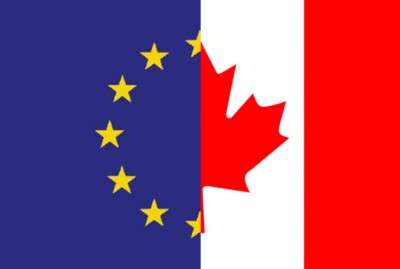EU Commission Seeks to Push Through Free Trade Agreement with Canada (CETA) without Parliamentary Approval

The EU Commission is reportedly planning to push through a free trade agreement between Canada and the EU, known as CETA, without giving the bloc’s national parliaments a say in it.
European Commission President Jean-Claude Juncker told EU leaders on Tuesday that CETA would fall within the exclusive competence of the EU executive and therefore didn’t need to be ratified by national parliaments in the 28-nation bloc, sources in Brussels told the German news agency DPA.
Juncker would, however, allow national lawmakers and ministers from all member states to “scrutinize” the free trade agreement with Canada, the news agency reported.
Reached in 2013, CETA was at the time described by the EU Commission as a “landmark achievement for the transatlantic economy” and a model for negotiating a free trade deal with the United States, known as the Transatlantic Trade and Investment Partnership (TTIP).
Trade Commissioner Cecelia Malmstrom hopes CETA is adopted before the end of October when it could be signed during a planned visit to Brussels by Canadian Prime Minister Justin Trudeau.
Opposition to free trade
Commission President Juncker argues that allowing national parliaments to have a say in the agreement will paralyze the process and put the bloc’s credibility at stake. There are estimates that it could take as many as four years for CETA to get through parliaments.
However, most EU member states view the deal as a “mixed” agreement, meaning each country would have to push the deal through their parliaments.
At an EU trade ministers’ meeting in Brussels in May, a major controversy erupted over jurisdiction, with a number of ministers expressing their distrust about Brussels.
“In Austria, we have quite strong distrust,” Vice Chancellor Reinhold Mitterlehner said after the meeting. “I think that the commercial side of CETA is a very, very good agreement and it is regrettable that everything is now being discussed in one boat and that possibly the whole boat will now be tipped.”
The Commission, which negotiates trade agreements on behalf of the 28 EU members, and Canada say CETA could increase trade between the two sides by some 20 percent.
However, the deal is facing opposition from campaign groups and trade unions, who say CETA is as dangerous as the planned EU-US TTIP trade deal. They say the deals hand power to multinationals and are a threat to democracy.

